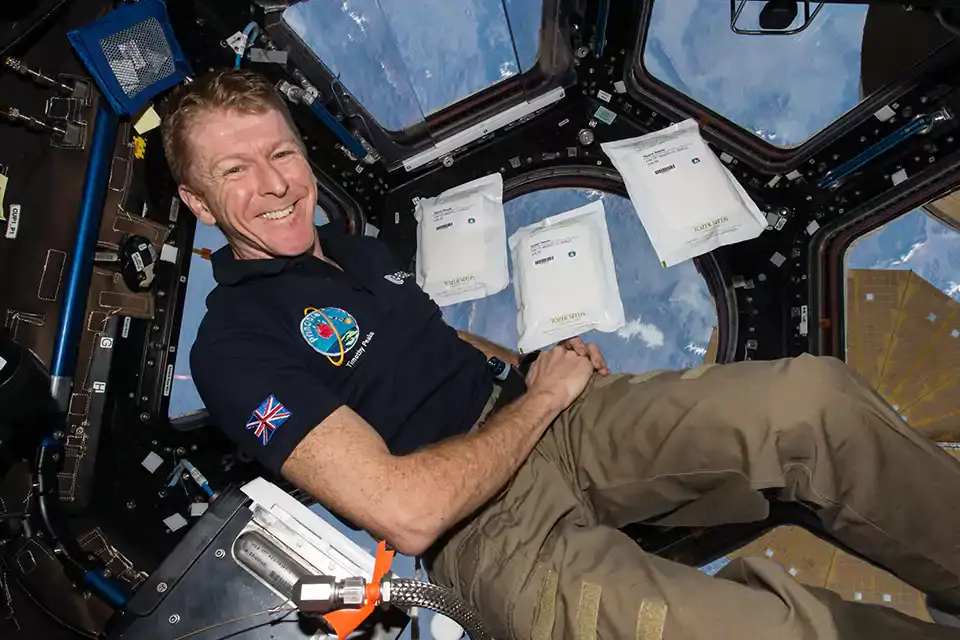Your salad, grown on Mars, may soon be a reality
New insights launched on Friday present that plant seeds taken to Mars on the International Space Station (ISS) and spent six months there develop solely barely slower when again on Earth, elevating the prospect of rising meals on the pink planet.
Two kg of rocket seeds had been on board the ISS with British European Space Agency astronaut, Tim Peake, as a part of his Principia mission. They absorbed as much as 100 occasions extra radiation than on Earth and had been subjected to intense vibrations from the stresses and strains of area journey.
When the seeds returned to Earth, 600,000 youngsters from colleges and teams within the UK took half in an experiment, supported by the UK Space Agency, to plant them and monitor their progress, evaluating it to that of seeds that had remained on Earth.
The company mentioned that whereas the area seeds grew extra slowly and had been extra delicate to ageing, they had been nonetheless viable. It means that, by taking smart steps to guard the seeds on their journey, it must be doable to develop vegetation in area or on one other planet for people to eat.
Peake mentioned: “In one of the largest and most inspirational experiments of its kind, more than half a million young people collected reliable data to help the scientists at Royal Holloway investigate the effects of spaceflight on rocket seeds”.
“When humans travel to Mars, they will need to find ways to feed themselves, and this research helps us understand some of the biology of seed storage and germination which will be vital for future space missions”, he added.
The analysis revealed in journal Life was led by Gerhard Leubner and Jake Chandler from Royal Holloway and Alistair Griffiths from the Royal Horticultural Society.
Chandler mentioned: “Transporting high quality seeds to space and beyond will be crucial for growing plants that support human exploration of space, Mars and other worlds. Our study found that a six-month journey to space reduced the vigour of rocket seeds compared to those that stayed on Earth, indicating that spaceflight accelerated the ageing process”.
“Thus, while we should carefully consider protecting seeds from potentially harmful factors including space radiation and mechanical vibration, the seeds remained alive, and the prospect of eating home-grown salad on Mars may be one small step closer”.
The RHS tasked 8,600 colleges and teams throughout the UK to participate within the managed examine, documenting their outcomes as a part of a challenge referred to as Rocket Science.
Source
